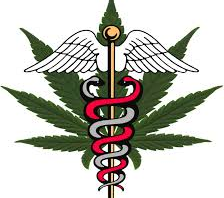We have a problem with hyperbole. In the interest of grabbing headlines and inciting reactions, extremism and polarizing statements rule the day. Journalistic integrity is warped to suit the need for bias as facts are twisted in support of unsupportable arguments.
In light of this and in a conscious effort to combat unhealthy news trends, here are some plain facts about cannabis.
Natural Cannabis
Our bodies naturally make a variety of compounds called endocannabinoids that play a vital role in cell to cell communication. Endocannabinoids have been implicated in cellular pathways pertaining to phenomena such as neural inflammation and aging. Because of the specific interactions these signals have with certain degenerative diseases, cannabinoids have been targeted as potential treatments for diseases such as multiple sclerosis (MS) and Huntington’s disease.
Targets for Therapy
These diseases are a result of dysfunctional nerve cells that lead to inflammation within the brain and eventually to nerve death. Two signal receptors in the endocannabinoid pathway, CB1 and CB2, have been implicated in the pathogenesis of MS and Huntington’s disease as action of these receptors has been shown to be anti-inflammatory. This action protects nerve cells, decreases symptoms, and slows the development of these types of diseases. By supplementing the body’s natural production of cannabinoids, researchers have been able to promote these positive results in patients afflicted with disease.
Despite the potential as a treatment, research with cannabis is remarkably difficult due to restrictions placed on its possession and handling. Even though cannabis has been demonstrated to be a reliable treatment in neurological disorder it remains a Schedule I drug which categorizes it as extremely addictive and without medical value. Because of this, rigorous experimentation with cannabis is limited.
The Future of Cannabis
While there is a movement to completely legalize the use of marijuana, this presses forward without complete information about its effects. It’s true that comparisons to cigarettes and alcohol have yielded cannabis as a healthier option, but this doesn’t mean that it lacks side-effects. More prudent steps to open testing and fully understand the drug should be undertaken before it is loosed on an unaware public, but first and foremost these studies should be focused on how cannabis can improve the lives of those affected by disease.
In addition to all of the medical reasons to investigate and decriminalize cannabis, there are societal and cultural implications that we as a country need to address before we can come to grips with marijuana in the pharmacy.
The Cannabis Debate

Great article. I am going through some of these issues as well..